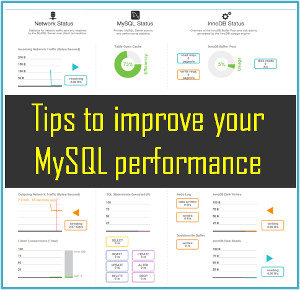How Is Your Data Being Used? A Look at the Ethics of Data Gathering
Whenever you go online, swipe a card in the supermarket or visit the doctor, you’re telling complete strangers something about you. Today, people’s lives are relentlessly tracked by data: what you’re buying, where you live and what you need.
Data is becoming a larger and more difficult issue that business managers, health care professionals and government policy makers need to address. The market is opening up for individuals with a master’s in negotiation and dispute resolution, data management, and other areas of study that examine how we shape policy and social norms in an increasingly technology-driven society and how companies will need to respond to the public concerned with how their data is being used.
Data in Email
Let’s say you get several emails from a friend living in Guatemala. Suddenly, you notice your email inbox is ringed by ads offering Latin American vacations. How did they get there? Who or what identified your friend’s location and decided you might need a vacation to the south? Or maybe you sign up for updates on sales and specials from one of your favorite online stores. Are you sure your email address will be protected. Or, are you so used to emptying your spam folder each day that you hardly notice the inconvenience anymore?
Data in Health Care
Of course you want your doctor to have all the facts about you. He or she needs to know about prior illnesses, your home address, your height, your weight and even information about your immediate family. However, do you really want that information being used by your doctor’s clinic or by a hospital to create databases about certain illnesses? About the demographic that they serve? Doctor’s records should be confidential, but once that data is put on a computer, it is only as safe as the system guarding it.
Also, the increasingly data-hungry computer systems and automated forms that doctors must fill in put another time strain on physicians’ and nurses’ already busy workdays, leading to accusations that some health care professionals put in the data too hurriedly to be accurate. Is the demand for more and more data creating situations where the important facts pertaining to your actual illness are overlooked by the need to fill in all the blanks? This is something health care ethicists must debate.
Data in Banking
Of all the points here, this might be the most important. Banks have always held on to our data in some form or another - from account numbers to safe deposit box keys to signatures and fingerprints certifying that yes, we really are who we say. But, in this digital age when banks are competing for the hold on your personal finances, they collect a lot more data than they did in years past. They know when we want to increase our mortgages, at what age we’re interested in saving for retirement, what kind of phone we use and how many payments it will take us on average to pay for a new car.
People use cash less and less for daily transactions, preferring instead to use online shopping or debit or credit cards to make their purchases. Each of these transactions allows the banks to paint a picture of your likes and dislikes and of your lifestyle choices. On one hand, this may be beneficial to you - suddenly you receive an offer from your credit card company for increased reward points when shopping for children’s clothes, after you just welcomed a new baby into the family. Or, it can be invasive. Do you really want your bank to know and advertise back to you, what brand of underwear you favor or what hotels you stayed in on your honeymoon?
Data in Shopping
Hand in hand with the bank’s data collection is data collected when shopping. Your bank can track where you shopped, but the store knows exactly what you bought. Store managers say that this provides an avenue for big businesses to provide better customer service, maximizing on items that people want and minimizing shelf space for things that are seldom required. However, when this data is later used to manipulate the opinions of shoppers and influence the buying decisions of groups of people, including children, it becomes less helpful and more of an issue for civic concern.
About the Author: Sheryn Allman is a professional business consultant and mediator who is concerned about citizens’ right to privacy.


 Janifar
Janifar







